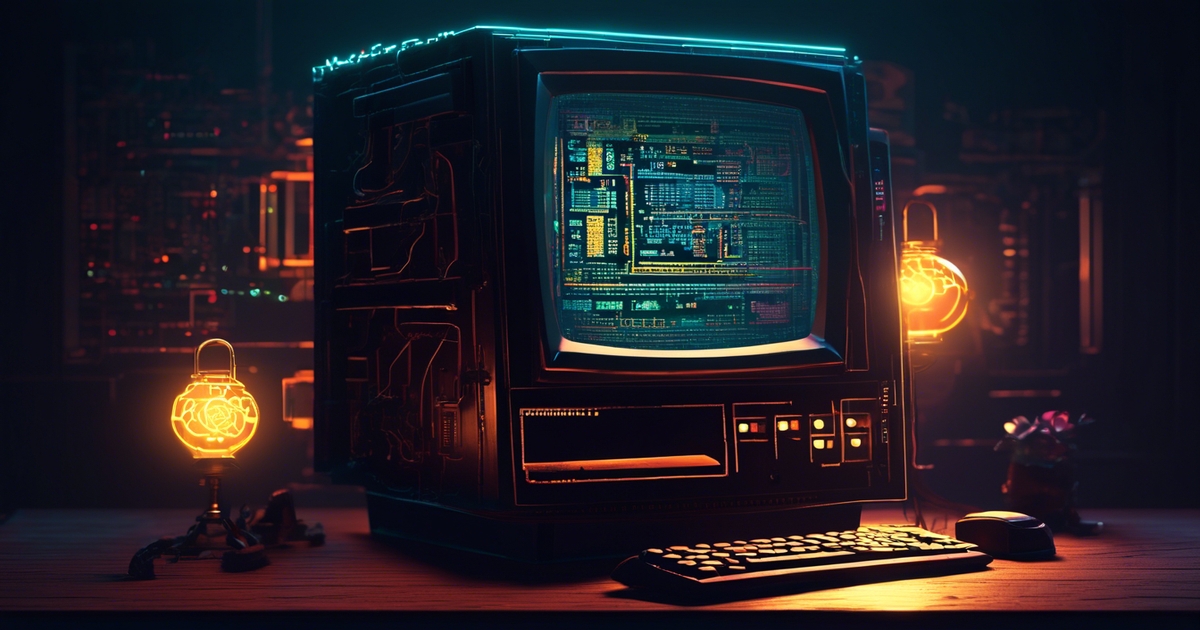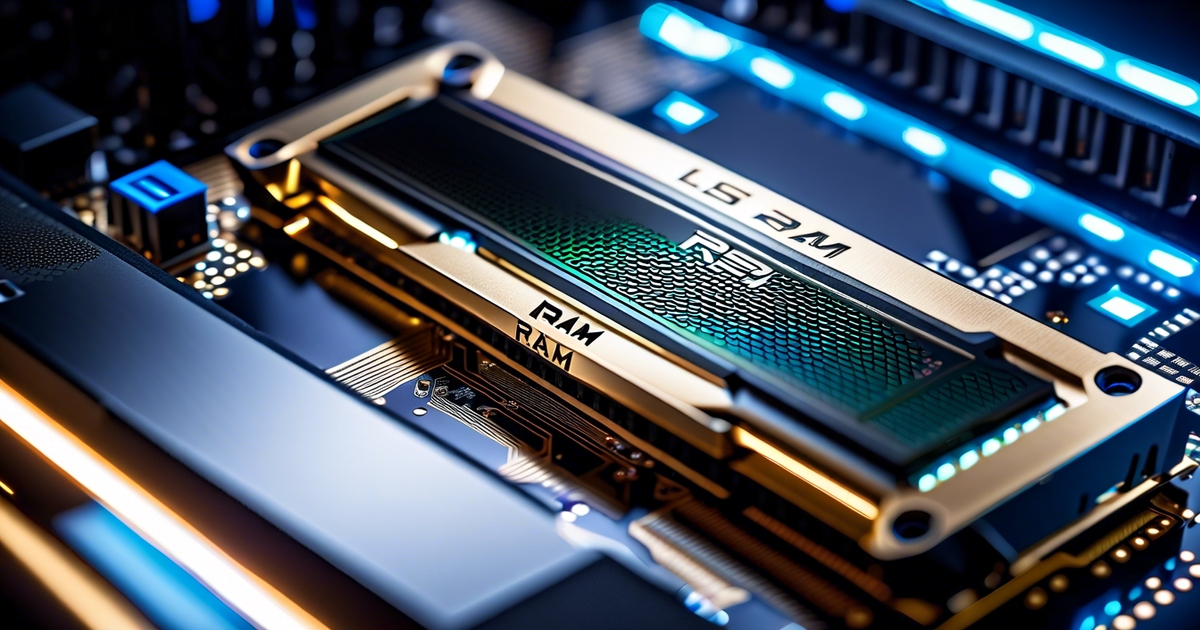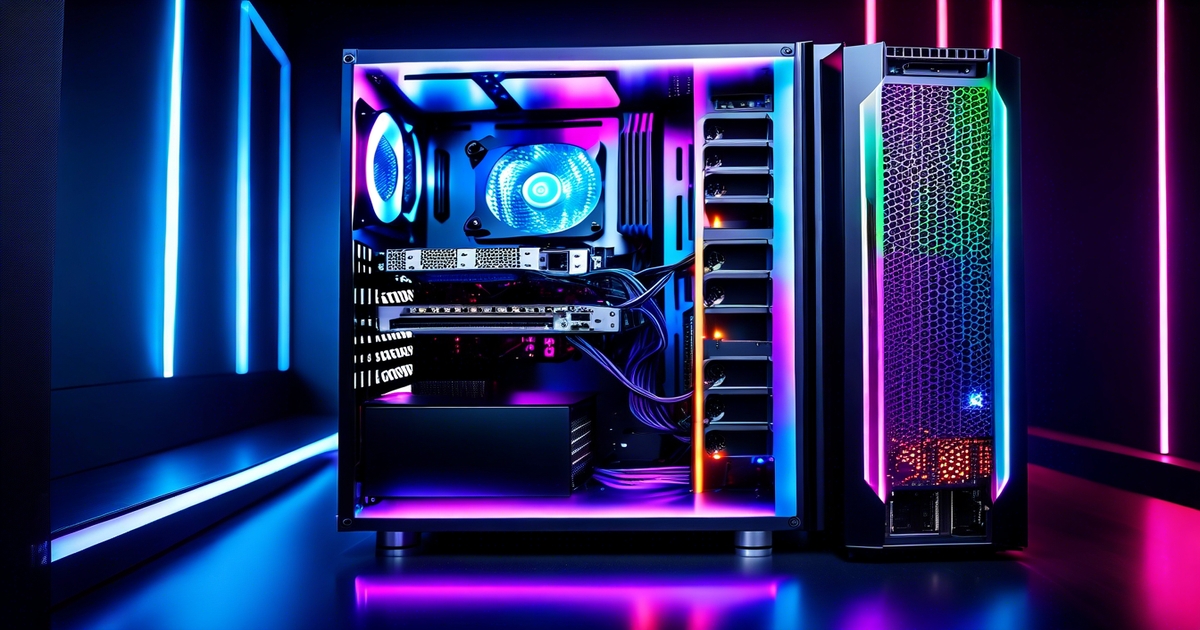How Much RAM Do I Need for Gaming?

- Key Takeaways
- How Much RAM Do You Need For Gaming?
- Understanding How RAM Works
- RAM Requirements for Gaming
- The Importance of RAM for Gaming
- Choosing the Right RAM for Your Gaming PC
- Optimizing Your PC’s RAM for Gaming
- Exploring RAM Speed for Gaming
- DDR4 vs. DDR5 RAM Comparison
- The Impact of RAM on Gaming Performance
- Conclusion
- Frequently Asked Questions
Surprisingly, the amount of RAM you need for gaming might not be as high as you think. With modern games becoming more demanding, having ample RAM is crucial.
However, here’s the catch – most gamers can enjoy a seamless gaming experience with just 8-16GB of RAM. More isn’t always better.
In this post, we delve into the ideal RAM specifications for gaming to help you level up your gaming setup without breaking the bank.
Key Takeaways
- To determine how much RAM you need for gaming, consider the specific requirements of the games you play and aim for a minimum of 8GB for most modern titles.
- Understanding how RAM works, as temporary storage for data that the CPU needs quick access to, helps in realizing its importance in gaming performance.
- When selecting RAM for gaming, prioritize capacity over speed, aiming for at least 16GB to ensure smooth gameplay and multitasking capabilities.
- Optimize your PC’s RAM for gaming by closing unnecessary background applications, updating drivers, and ensuring proper ventilation for efficient performance.
- DDR4 RAM is currently the more common and cost-effective choice for gaming PCs, offering good performance, while DDR5 RAM provides faster speeds but at a higher price point.
- The amount and speed of RAM directly impact gaming performance, influencing factors like loading times, frame rates, and overall system responsiveness.
How Much RAM Do You Need For Gaming?
For an optimal gaming experience, 8GB to 16GB of RAM is usually sufficient. Having this amount of RAM allows games to run smoothly without any lag or performance issues.
Having more than 16GB of RAM can be beneficial for gamers who want to run multiple programs simultaneously while gaming, such as streaming software or other applications in the background. However, having less than 8GB might result in slower game loading times and overall performance.
Understanding How RAM Works

RAM, or Random Access Memory, is a crucial component in your computer that stores data temporarily. It allows your system to access and retrieve data quickly, significantly enhancing overall performance. Unlike other types of storage, RAM works by storing data in cells that can be accessed randomly.
This means that when you’re gaming, the more RAM you have, the smoother your gaming experience will be. Imagine each game you play as a puzzle; having sufficient RAM is like having a larger table to work on the puzzle pieces without running out of space. With ample RAM, your computer can load game assets faster and keep up with complex visuals and actions seamlessly.
RAM Requirements for Gaming

Gaming demands more RAM than regular tasks, given the high requirements of modern games. The amount needed varies based on factors like game specifications, resolution, and multitasking needs. Most modern games suggest a minimum of 8GB of RAM, but having more can enhance performance and gameplay smoothness.
Having sufficient RAM is crucial for seamless gameplay without lags or delays. Games with high graphics or complex environments require more RAM to run smoothly. For instance, open-world games like “Red Dead Redemption 2” demand a higher RAM capacity due to their intricate landscapes and detailed graphics.
The Importance of RAM for Gaming
Enough RAM is essential for gaming as it stores game data, reducing loading times and lag. Insufficient RAM can result in poor performance like stuttering and longer load times. With more RAM, multitasking during gaming becomes smoother, allowing background applications to run seamlessly.
Having the right amount of RAM ensures that games run smoothly without interruptions or delays. Picture this: you’re playing your favorite game, and suddenly it freezes due to insufficient RAM, disrupting your gameplay experience. On the other hand, if you have enough RAM, the game runs seamlessly, enhancing your overall enjoyment.
Choosing the Right RAM for Your Gaming PC
When determining how much RAM you need for gaming, it’s crucial to consider the DDR generation. Currently, DDR4 is the most common choice among gamers due to its improved performance. Ensure compatibility with your motherboard by checking which RAM modules are supported.
the speed (MHz) and timings of the RAM modules play a significant role in optimizing your gaming experience. Higher speeds can enhance performance, but they often come at a higher cost. Consider your specific needs and budget when selecting the ideal RAM for your gaming setup.
Remember that having sufficient RAM is essential for smooth gameplay without lags or delays. By considering these factors, you can ensure that your gaming PC operates at its best capacity to handle all your favorite games seamlessly.
Optimizing Your PC’s RAM for Gaming
To ensure a smooth gaming experience, it’s crucial to optimize RAM usage on your PC. Close any unnecessary background applications to free up more memory for gaming. By doing this, you allow your system to allocate more resources towards running the game smoothly.
Utilize system optimization tools or task managers to identify resource-intensive processes that might be consuming excessive RAM. These tools can help pinpoint which programs are hogging memory and causing performance issues in your games. Adjusting virtual memory settings is another essential step in maximizing RAM efficiency for gaming purposes. Allocate additional space on your hard drive as virtual memory when the physical memory is fully utilized during gameplay.
Exploring RAM Speed for Gaming
RAM speed, measured in MHz, directly impacts how quickly data is read and written from memory. Higher speeds can enhance gaming performance, especially in CPU-intensive games. The rate at which your computer processes game data can be significantly influenced by the speed of your RAM.
Having faster RAM can result in smoother gameplay and quicker loading times. Imagine playing a high-action game where every split second counts – having optimal RAM speeds could mean the difference between winning or losing a crucial battle. However, it’s essential to note that while higher speeds generally lead to improved gaming experiences, the actual impact may vary based on other hardware components and how well a specific game is optimized.
DDR4 vs. DDR5 RAM Comparison
DDR4 RAM is commonly used in gaming PCs due to its reliable performance and broad compatibility with existing hardware. It offers a good balance of speed and cost-effectiveness, making it a popular choice among gamers. However, as technology advances, the need for faster and more efficient memory solutions arises.
On the other hand, DDR5 RAM represents the next step in memory evolution, boasting higher speeds, increased bandwidth capabilities, and improved energy efficiency compared to DDR4. While upgrading to DDR5 may offer future-proofing advantages by ensuring compatibility with upcoming technologies, it comes at a premium price point initially.
Pros and Cons:
- DDR4: Good performance & compatibility
- DDR5: Higher speeds & improved power efficiency
The Impact of RAM on Gaming Performance
RAM plays a crucial role in determining your gaming experience. Having sufficient RAM is essential for smooth gameplay, faster loading times, and reduced lag while playing games. Imagine trying to play a graphically intense game with inadequate RAM; it could result in frustrating lags and delays that disrupt your gaming flow.
On the flip side, if you have insufficient RAM, it can bottleneck your system’s performance, limiting the full potential of your gaming setup. Upgrading your RAM can be a cost-effective solution to enhance your gaming experience without having to replace other components in your computer. It’s like giving your PC a boost of energy specifically tailored for smoother gameplay.
Conclusion
So, there you have it – the lowdown on RAM for gaming. Understanding how much RAM you need, the importance of RAM speed, and choosing between DDR4 and DDR5 are all crucial in optimizing your gaming experience. Remember, having the right amount of RAM can make or break your gameplay.
Now that you’re armed with this knowledge, go ahead and tweak your PC’s RAM settings to suit your gaming needs. Don’t forget to keep an eye on advancements in RAM technology to stay ahead of the game. Happy gaming!
Frequently Asked Questions
How does RAM affect gaming performance?
RAM directly impacts gaming performance by storing and accessing data quickly for smooth gameplay. Sufficient RAM ensures games run without lags or delays, enhancing the overall gaming experience.
What is the minimum amount of RAM required for gaming?
For modern gaming, a minimum of 8GB RAM is recommended to handle most titles smoothly. However, for optimal performance and future-proofing, consider upgrading to 16GB or higher.
Does RAM speed matter for gaming?
Yes, RAM speed matters in gaming as it affects how fast data can be accessed. Higher RAM speeds lead to improved performance in tasks that are memory-intensive like running multiple applications while playing games simultaneously.
How do I know if my PC’s current RAM is enough for gaming?
Monitor your PC’s resource usage while playing games using tools like Task Manager. If you notice high usage levels nearing your total installed RAM capacity or experience frequent slowdowns, consider upgrading your RAM.
Should I prioritize getting more RAM or faster storage (SSD) for better gaming performance?
Both factors contribute to a smoother gaming experience but serve different purposes. If you frequently multitask during gameplay or use memory-heavy applications, prioritize upgrading your system’s RAM first before investing in faster storage options like SSDs.
